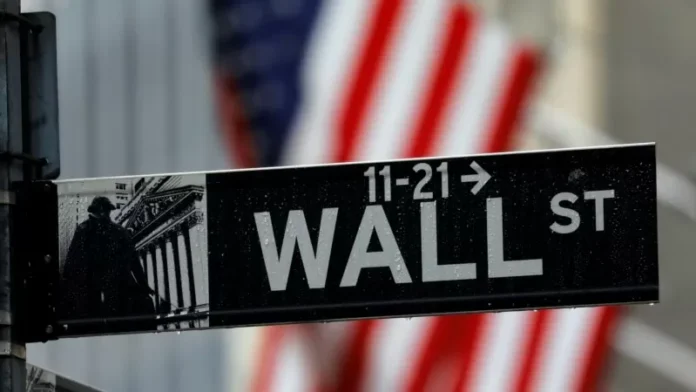New York – Economic fears are causing turmoil on Wall Street, as concerns grow that the Federal Reserve may have kept interest rates too high for too long, ultimately hurting the growth of the U.S. economy.
Recent economic data has only added to these worries. In July, the U.S. job growth slowed down more than expected while the unemployment rate increased to 4.3%, sparking fears that a weakening labor market could leave the economy vulnerable to a recession.
This alarming jobs report triggered a sell-off in stocks that began on Thursday, when weak data from the labor market and manufacturing sector prompted investors to sell off everything from chip stocks to industrials, and seek refuge in defensive plays.
Tech stocks, which were already highly valued, continued to plummet on Friday, leading the Nasdaq Composite to fall more than 10% from its record high in July. The S&P 500 index has also dropped 5.7% from its peak in July.
“This is what a growth scare looks like,” explained Wasif Latif, president and chief investment officer at Sarmaya Partners. “The market is now realizing that the economy is indeed slowing down.”
For months, investors had been optimistic about the cooling inflation and gradual slowdown in employment, believing that it would support the case for the Fed to start cutting interest rates. This optimism drove significant gains in the stock market, with the S&P 500 still up 12% this year and the Nasdaq gaining nearly 12%.
However, with the possibility of a rate cut in September now on the table after a recent Fed meeting, investors are concerned that high borrowing costs may already be hindering economic growth. Disappointing corporate earnings from companies like Amazon, Alphabet, and Intel are only adding to these concerns.
“We’re seeing the consequences of high expectations,” said James St. Aubin, chief investment officer at Ocean Park Asset Management. “So much was invested in the idea of a soft landing, that anything that suggests otherwise is difficult for the market to handle.”
Next week, we will see earnings reports from industrial giant Caterpillar and media and entertainment powerhouse Walt Disney, which will provide further insight into the state of the consumer and manufacturing sectors. We will also hear from healthcare heavyweights like weight-loss drugmaker Eli Lilly.
On Friday, futures markets showed an increasing unease about the economy. Fed fund futures revealed that traders are now pricing in a more than 70% chance of a 50-basis point cut at the central bank’s September meeting, compared to just 22% the day before, according to CME FedWatch. Futures are now pricing in a total of 116 basis points in rate cuts by 2024, up from just over 60 basis points on Wednesday.
The broader market is also showing signs of unease, with the Cboe Volatility index (known as Wall Street’s fear gauge) reaching its highest level since March 2023 on Friday, as investors seek protection against a potential stock market drop.
Meanwhile, investors are flocking to safe haven bonds and other defensive areas of the market. The yield on U.S. 10-year bonds, which moves inversely to bond prices, dropped to 3.79% on Friday, the lowest it has been since December.
Investors are also turning to sectors that are typically popular during times of economic uncertainty. Options data for the Health Care Select Sector SPDR Fund showed a bullish trend over the past month, according to a Reuters analysis of Trade Alert data. Similarly, trading in options for the Utilities Select Sector SPDR Fund also indicates a retreat in defensive positioning, highlighting traders’ expectations for strength in this sector.
In the past month, the healthcare sector has seen a 4% increase while utilities have seen a 9% increase. In contrast, the Philadelphia SE Semiconductor index has dropped almost 17% in the same period, with investor favorites like Nvidia and Broadcom experiencing significant losses.
However, some investors believe that this data could simply be a reason for investors to take profits after a strong year so far.
“This is a good opportunity for investors to sell after a significant rally this year,” said Michael Purves, CEO of Tallbacken Capital Advisors. “Investors should be prepared for some volatility, particularly in the big tech stocks. But it will likely be short-lived.”
Despite the recent economic concerns and market volatility, it is important for investors to stay calm and not make knee-jerk reactions. The U.S. economy

